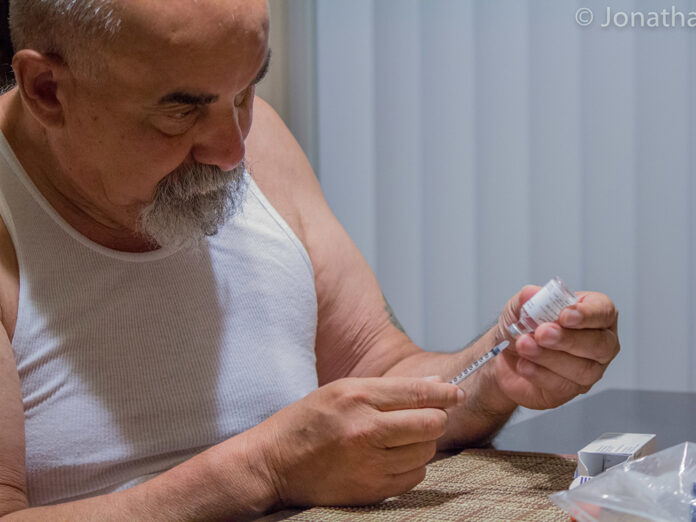More than 34 million Americans have diabetes and one in five don’t know they have it, according to the Centers for Disease Control and Prevention. Another 88 million-plus have
pre-diabetes and more than 84% of them don’t know it.
Diabetes is a chronic condition in which the body does not properly process food for use
as energy. The body can’t make enough insulin or isn’t able to use its own insulin as well as
it should. As a result, sugar builds up in your blood. It is the seventh-leading cause of death in America — and may be underreported.

There are two types of diabetes.
Type 1, which accounts for 5%-10% of cases, is when the body does not produce insulin. It may start as early as childhood. Type 2, when the body doesn’t use insulin properly, is 90%-95% of cases. Sometimes called adult-onset diabetes, it is more common in people who are overweight and may be hereditary.
Serious health complications can include heart disease, blindness, kidney failure and lower-extremity amputations.
In the last 20 years, the number of adults diagnosed with diabetes has more than doubled as the American population ages and becomes more overweight. People in those ranges should be aware of symptoms.
Pain or numbness in the hands and feet, extreme fatigue and blurry vision are just a few of the warning signs that you might be at risk for diabetes. Check with your doctor if you are experiencing any of these symptoms. Early detection and treatment can decrease the risk of possible complications.
Living with a chronic condition, such as diabetes, can leave you feeling tired or depressed. Some days will be harder to get through than others.
Take care of your emotional health. Diet, exercise and taking time to relax are very
important and contribute to your overall health. Have regular checkups. Do simple
things you enjoy. Go to a movie. Take a mini road trip. Read a book.
And more importantly — keep informed.
Make a list of questions and take them to your next doctor appointment.
Joan Koczor is a senior advocate and a member of the Age-Friendly Maricopa Advisory Board.
www.diabetes.org; dietary guidelines, MyPlate.gov
This column appears in the March issue of InMaricopa magazine.






![Elena Trails releases home renderings An image of one of 56 elevation renderings submitted to Maricopa's planning department for the Elena Trails subdivison. The developer plans to construct 14 different floor plans, with four elevation styles per plan. [City of Maricopa]](https://www.inmaricopa.com/wp-content/uploads/2024/04/city-041724-elena-trails-rendering-218x150.jpg)

![Affordable apartments planned near ‘Restaurant Row’ A blue square highlights the area of the proposed affordable housing development and "Restaurant Row" sitting south of city hall and the Maricopa Police Department. Preliminary architectural drawings were not yet available. [City of Maricopa]](https://www.inmaricopa.com/wp-content/uploads/2024/04/041724-affordable-housing-project-restaurant-row-218x150.jpg)









